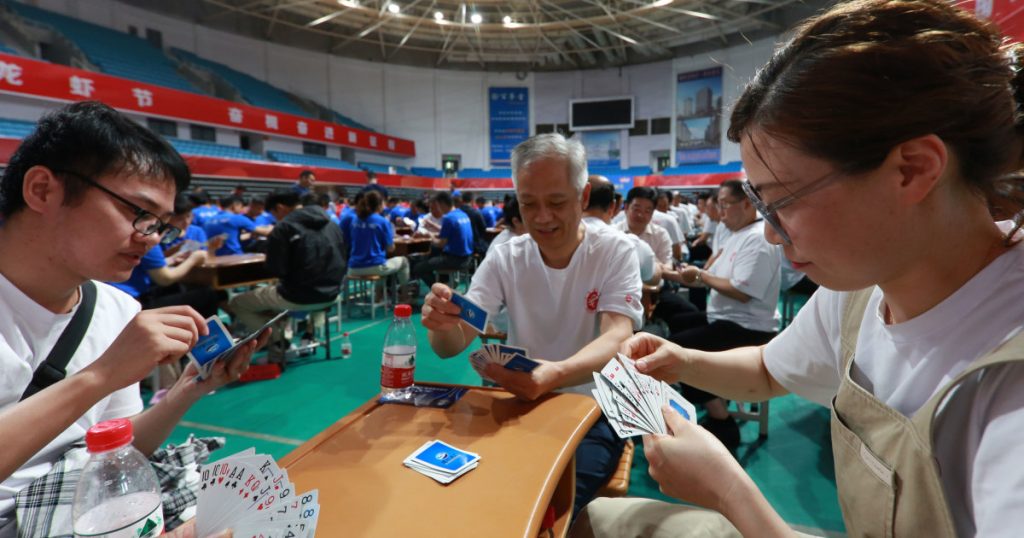Chinese investors are turning to a traditional card game known as guandan as they navigate changing economic landscapes and strained U.S.-China relations. With American investors pulling funds out of China, financial professionals in the country are focusing on networking domestically and engaging in social activities like guandan. The game, which is similar to poker, originated in Jiangsu and has become popular among Chinese financiers amid increased restrictions on U.S. investment in strategic sectors in China. This shift in focus is seen as a way to navigate the challenging economic environment and build stronger business partnerships.
In response to President Joe Biden’s executive order restricting U.S. investment in China, local financiers are finding new ways to attract business and funds within China. Chinese President Xi Jinping has been making efforts to revive confidence in the economy, meeting with top U.S. executives and issuing targeted measures to attract foreign investment. With China’s economy struggling to rebound post-pandemic, playing guandan has become a way for investors to cater to the preferences of local government officials and potential sources of business. The game is seen as a social activity that can help build relationships in a competitive market.
The popularity of guandan has grown significantly in affluent Chinese provinces and cities, with millions of people playing the game regularly. The easy-to-learn nature of guandan, where four players are paired up in two teams to work together, makes it a convenient social activity for busy professionals. Unlike other popular games like mahjong and Texas Hold’em, guandan is not a betting game, making it a safer choice in a country where illegal gambling is facing crackdowns. Finance professionals like Jerry Niu have embraced the game as a way to bond with clients, engage in conversation, and build stronger business partnerships.
Guandan has proven to be a valuable tool for networking and fostering relationships in the Chinese financial industry. By playing the game, financial professionals are able to establish alliances rather than competing directly with each other. This cooperative element of the game can lead to enhanced trust and communication, making it easier to navigate a challenging economic and political environment. In cities like Shanghai, the game is being promoted by the Guandan Card Association and endorsed by influential figures like billionaire Qi Shi, reflecting its importance within the financial community.
The popularity of guandan has transcended the financial industry and spread across China, with an estimated 140 million players nationwide. The game is also being introduced in educational settings, where students are encouraged to learn it as a way to develop intellectual abilities and teamwork skills. In major cities, finance professionals are organizing guandan gatherings for individuals from various industries, creating opportunities for networking and collaboration. This growing trend reflects the adaptability and resilience of Chinese investors in the face of changing economic conditions and geopolitical tensions.
Overall, guandan has emerged as a significant social phenomenon in China, offering a unique platform for networking, building relationships, and navigating turbulent economic environments. By embracing this traditional card game, Chinese financial professionals are not only honing their strategic skills but also fostering a sense of camaraderie and cooperation. As they navigate the challenges of a shifting economic landscape and international relations, guandan has become a valuable tool for building bridges, engaging in meaningful conversations, and forging lasting partnerships within the financial community and beyond.


